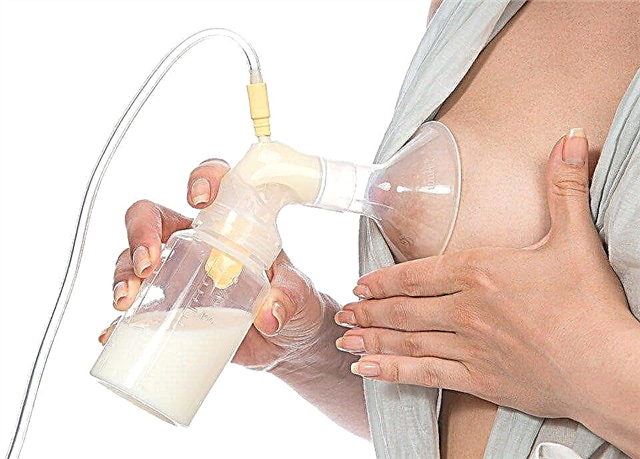
Peach is one of the most favorite delicacies of most women, moreover, it is comprehensively useful for the body. However, at the stage of pregnancy and breastfeeding, you should choose products not only according to theoretical benefits or your own preferences, but also according to how fragile children's body is ready to accept its components. Any food can become the cause of sudden problems, so even with peaches you have to be careful.
Use during gestation
Starting from the early stages of pregnancy, the female body needs an ever-growing amount of vitamins and minerals, because a completely new person is being built from scratch inside the adult body. Peach can be a great source of all this goodness for pregnant women, even though it often causes allergies. In this case, you should just carefully introduce it into your own diet, paying attention to the slightest changes in well-being.
Moreover, experts advise starting to consume this fruit literally from the first month of pregnancy, because the components contained in the peach contribute to the early elimination of toxins from the body, which the woman's body is full of due to hormonal toxicosis.

However, the benefits of the fruit do not end there, and up to the 3rd trimester it should be eaten for such results:
- an abundance of magnesium helps to calm down and not succumb to stress, which is typical and rather dangerous for the fetus during pregnancy;
- thanks to potassium, excess fluid is removed from the female body, reducing the likelihood of edema;
- potassium has a positive effect on the health of the cardiovascular system;
- calcium is not replaceable at all, since it is the main building material for the developing musculoskeletal system of the baby;
- phosphorus is also involved in strengthening bones, not only for children, but also for mothers, because her spine is now forced to withstand an increased load, and this element is also extremely important for the development of the child's brain and nervous system;
- folic acid during pregnancy is extremely important for the correct transmission of the genetic code, in addition, it is responsible for the correct formation and functioning of the placenta;
- iron allows you to saturate the blood with hemoglobin and more efficiently supply two organisms with air through one common circulatory system.
This, of course, does not end the list of useful contents of such a fruit. There is also a complex of vitamins, as well as many different minerals, in addition to those mentioned, just a little less of them. There is nothing superfluous in a naturally grown fruit - the same plant fibers contribute to the regularity of the gastrointestinal tract, which is also useful.


Reception at the stage of breastfeeding of the newborn
Immediately after giving birth, a child can be considered a separate organism rather conditionally. In fact, at first, he even eats what his mother ate earlier, because milk contains all that healthy (and not so much) that was in her food. The useful components of the peach, of course, remain the same, but at the GV stage they can perform slightly different functions.
- The components of the fruit activate the nervous system, which helps the baby to quickly learn and understand the world around him. At the same time, it works smoothly, without overvoltage, which also affects a stable sleep schedule.
- It is especially important for a nursing mother to consume this fruit precisely because of its ability to quickly remove toxins from the body. She herself is able to monitor the state of her body and does not eat anything harmful, but toxins can appear in the baby's body at any time due to an allergy to a particular product or the inability of a weak immune system to resist diseases. In such a situation, the peach eaten by the mother will help her child to improve his health.


- These sunny fruits also have a noticeable mood-lifting property. This is caused both by the banal pleasant taste of such food, and by the fact that the vitamins in the composition of the fruit increase the body's resistance to stress, which is why yesterday's problems no longer seem so serious.
- The constituents of this fruit are very conducive to the establishment of peristalsis, and also generally contribute to the softening of digested food. Thanks to this, peach is one of the best natural remedies for constipation, and these problems are typical for mothers and babies.
- The characteristic sourness in the taste of the peach indicates that this fruit is rich in vitamin C - the most famous immune stimulating substance that helps the body to overcome any disease. After giving birth, the mother's body turns out to be somewhat exhausted, therefore it is more susceptible to infection, while the baby's immune system is not yet particularly able to resist infection. In such a situation, natural vitamin C is literally what the doctor ordered.
- Another beneficial property of the fruit is that it effectively relieves heartburn.


General rules
During pregnancy, mom can eat peaches almost every day, especially if they have always been an important item on her menu. After the birth of the baby, you should wait for some time, because in the first months for the baby, literally anything can act as a potential irritant. Doctors advise including these fruits in the mother's diet from about the second month. As with all other products, this should be done very gradually, starting, figuratively speaking, with a half and tracking the baby's reaction to breast milk. If within several days no negative effects were noticed, then the dosage can be gradually increased.
As for a separate meal for the baby himself, then he can start giving him peach juice from about four months of age. Of course, it is advisable to first check this product on the mother and the child's reaction to milk, but in any case, you should start with small dosages. Grated into a gruel, this fruit is given no earlier than 6-7 months of age.
Unfortunately, unfamiliar food in the first year of life can cause allergies in a child, even if very soon he will outgrow it. Moreover, in some cases, at this stage, even the mother's body does not want to take a peach, which had not previously resisted such food. Signs of allergy in this case are typical: they are expressed in reddening of the outer integument, a characteristic rash and itching, in especially severe manifestations are accompanied by coughing and sneezing, tearing and runny nose.


If an allergy occurs, the intake of a product that caused a violent reaction of the body must be stopped immediately, and in order to quickly determine what was the irritant, you need a peach, like other unfamiliar food, to be introduced into the diet gradually and separately.
It should be noted that an allergic reaction to this fruit is more common in a baby if one of the parents is also allergic to it. Due to the potential allergenicity of peach, it is never advised to eat it in large quantities - even in a supposedly controlled situation, you should not consume more than three per day.
For some mothers, even without the characteristic signs of peach allergy, this fruit is undesirable for consumption due to its special properties. Not being too high in calories, it still abounds in sugars, and therefore is not recommended for diabetics or people prone to overweight. The diuretic effect of the fruit, thanks to which it copes so successfully with the elimination of toxins from the body, creates an increased load on the kidneys and excretory pathways, therefore, with such a diagnosis, it should not be abused either. Before introducing this product into the diet, a young mother should once again visit her nutritionist, who will tell you whether you can diversify your menu with these fruits.


Of course, you can poison yourself with a peach without any allergies, so parents should carefully choose fruits, refusing those that have signs of rotting. Experts advise mothers not only to wash the peach before use, but also to remove the peel from it. So it will be cleaner and less likely to provoke allergies, because the main concentration of allergens is observed here.
Fruits from a well-known garden should be preferred even if they visually look much less attractive than their store counterparts - this is the only way to be sure that the fruit has not been treated with various harmful chemicals for a more attractive presentation.
For information on what kind of fruit a nursing mother can use, see the next video.



